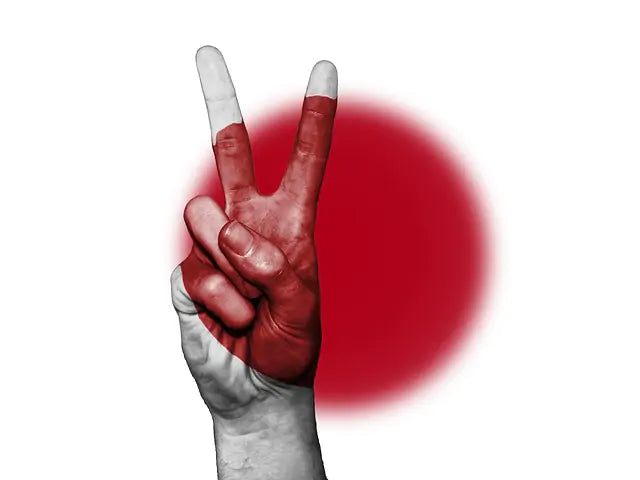Your basket is currently empty.
Shop NowRecycling Around the World A-Z : Japan

Recycling Around the World A to Z: Japan
Japan has one of the best recycling systems in the world. This is mainly due to stringent regulations which are aimed at encouraging residents and businesses alike to recycle as much waste as they can. In Japan, around 50% of waste is recycled.
Why is recycling so important for Japan?
Japan has a large population, and little available land. This means that sending waste to landfill is not a viable or sustainable option. The country’s industrial economy means that air pollution is a problem, so this makes incineration an unattractive option.
Legislation
One of the ways in which Japan ensures that it’s recycling rate is kept at a respectable level is by introducing legislation.
The Container and Packaging law
As 60% of the waste that Japan throws away is containers and packaging, this law was introduced to promote more efficient use of recycled containers and packaging. Glass containers, paper cartons, and metal tins and cans fall within the remit of this law. The law has ensured that Japan has achieved a 100% recycling rate of drinks cans.
The Home Appliance Recycling Law
This law promotes the reuse of useful parts of old appliances, so that fewer appliances get dumped in landfill. The law states that customers must pay a fee to recycle appliances, that retailers accept unwanted appliances back, and that manufacturers have an appropriate recycling process for unwanted goods. Many manufacturers have made their products more recyclable due to this law, as the law requires that at least 55% of appliances such as TV’s are recycled.

Vehicle recycling
Drivers must pay vehicle manufacturers to recycle old vehicles. The fee covers the cost of recycling harmful chemicals that are present in airbags. The Automobile Recycling Law, introduced in 2005, makes it law for manufacturers to have to recycle certain parts of a vehicle. The government wanted to encourage manufacturers to make cars more recyclable in the first place, to boost the recycling rate up to 95% from the current 80%.
Strict recycling regulations
Recycling is a serious business in Japan. In some towns and cities there are 10 categories of recyclable waste, and in one area, there are 44! Most areas give booklets to residents to help allay at least some of the confusion. Waste is picked up each day and it must be left in see-through plastic bags so it can be inspected. Volunteers monitor waste bags for any items that shouldn’t be there, and the offending resident will have the authorities or their landlord to deal with.
A community effort
Japan’s cities are very clean. Citizens take pride in this and woe betide anyone who graffitis or litters. You will often see older people cleaning up the neighbourhoods; it’s a matter of pride. Japan has changed. No longer is waste divided into what you can and can’t burn. Now all waste is separated at source.
Tourists are not exempt
Most of the tourists that come to see the wonder of Mount Fuji each year are careful not to litter. But the number of tourists does result in overflowing bins, which crews are now employed to clean up. There are even eco-friendly toilets along the route which cost $40,000, and they incinerate the waste then it is brought down the mountain.

